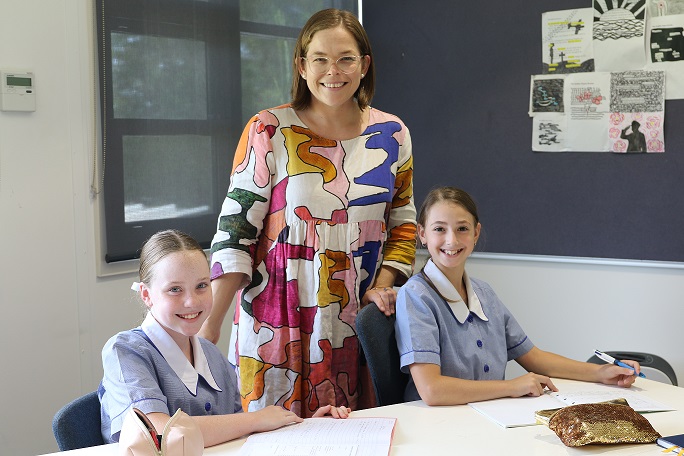
Last week, a report from the Grattan Institute revealed that one-third of young people in Australia cannot read proficiently, warning that this issue is costing the country $40bn over those students’ lifetimes.
The report, titled: ‘The Reading Guarantee: How to give every child the best chance of success’ says this “preventable tragedy” is the result of decades of disagreement about how to teach reading.
However, some schools believe they have cracked the code when it comes to staying on top of declining literacy rates, and remain hard at work upskilling their teachers with evidence-based strategies to ensure students thrive in this critical area of learning.
One of these school is Loreto Normanhurst, a Sydney-based Girls’ School, which is currently implementing innovative programs to ensure its students are exposed to a wide range of skills including reading and thinking aloud with texts and deliberately building vocabulary with a focus on building comprehension skills.
“Loreto Normanhurst is taking extra measures to ensure our teachers stay on top of our students’ ability to access more complicated texts and make inferences about what they are reading,” Loreto Normanhurst’s Head of English, Ellen Lincoln said.
This year, the school is rolling out new programs in line with reforms to the NSW English syllabus, which are premised on the need for explicit teaching of reading and writing.
“We are still in the process refining our approach - it isn’t something that is adequately covered in pre-service teacher education, so it is really up to us to upskill ourselves and our team in this area and develop our faculty wide approach,” she said.
“In addition to our new innovative programs, new initiatives such as fortnightly literacy lessons for Year 7 and 8 students aimed at building core and common literacy skills are providing great outcomes.”
Lincoln said reading and writing is not only essential but is a key part of young people’s development.
“The process of engaging with texts is vital to developing critical thinking skills in connection with fostering an appreciation of real-world issues affecting them,” she said.
“A whole school approach is underway to solidify the school’s integrative approach. It’s clear the Grattan Report serves as a timely reminder for all schools to upskill their teachers in the explicit skills of reading and writing.”


